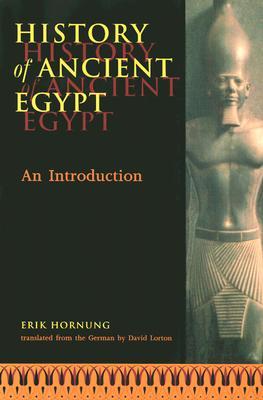From our vantage point ancient Egyptian civilization, with its strictly hierarchic organization, can appear static through its three-thousand-year history. In his concise and authoritative introduction to that distant culture, a renowned Egyptologist reveals the turbulent events beneath the rigid facade. Erik Hornung begins his account by taking a brief look at the prehistoric era in Egypt. He then focuses on political events during the period beginning with the reign of Menes and closing with the conquest by Alexander the Great. Building on insights drawn from the civilization's surviving texts and monuments, he also describes significant cultural developments, such as changes in burial customs and the building of the Great Pyramids and Sun Temples.Originally published in German, this important and highly useful survey has been revised throughout for its publication in English. In addition, the English version features over fifty illustrations, an updated bibliography, a glossary, and a chronological table.

From our vantage point ancient Egyptian civilization, with its strictly hierarchic organization, can appear static through its three-thousand-year history. In his concise and authoritative introduction to that distant culture, a renowned Egyptologist reveals the turbulent events beneath the rigid facade. Erik Hornung begins his account by taking a brief look at the prehistoric era in Egypt. He then focuses on political events during the period beginning with the reign of Menes and closing with the conquest by Alexander the Great. Building on insights drawn from the civilization's surviving texts and monuments, he also describes significant cultural developments, such as changes in burial customs and the building of the Great Pyramids and Sun Temples.Originally published in German, this important and highly useful survey has been revised throughout for its publication in English. In addition, the English version features over fifty illustrations, an updated bibliography, a glossary, and a chronological table.